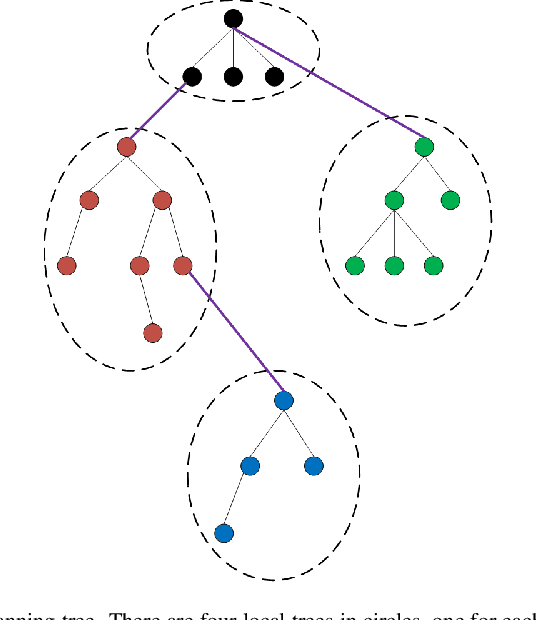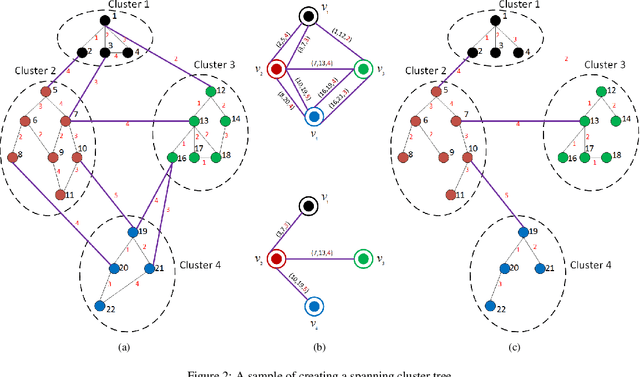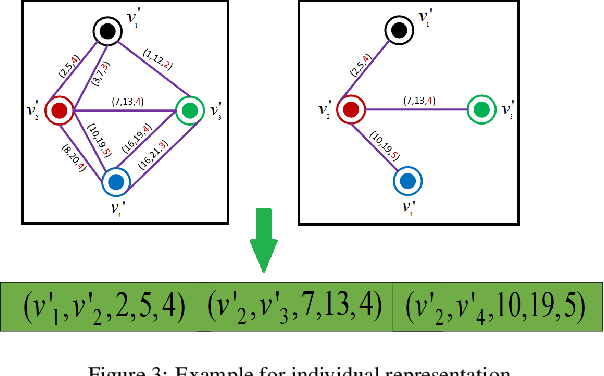Phan Thi Hong Hanh
Evolutionary Algorithm and Multifactorial Evolutionary Algorithm on Clustered Shortest-Path Tree problem
Oct 19, 2020



Abstract:In literature, Clustered Shortest-Path Tree Problem (CluSPT) is an NP-hard problem. Previous studies often search for an optimal solution in relatively large space. To enhance the performance of the search process, two approaches are proposed: the first approach seeks for solutions as a set of edges. From the original graph, we generate a new graph whose vertex set's cardinality is much smaller than that of the original one. Consequently, an effective Evolutionary Algorithm (EA) is proposed for solving CluSPT. The second approach looks for vertex-based solutions. The search space of the CluSPT is transformed into 2 nested search spaces (NSS). With every candidate in the high-level optimization, the search engine in the lower level will find a corresponding candidate to combine with it to create the best solution for CluSPT. Accordingly, Nested Local Search EA (N-LSEA) is introduced to search for the optimal solution on the NSS. When solving this model in lower level by N-LSEA, variety of similar tasks are handled. Thus, Multifactorial Evolutionary Algorithm applied in order to enhance the implicit genetic transfer across these optimizations. Proposed algorithms are conducted on a series of datasets and the obtained results demonstrate superior efficiency in comparison to previous scientific works.
 Add to Chrome
Add to Chrome Add to Firefox
Add to Firefox Add to Edge
Add to Edge